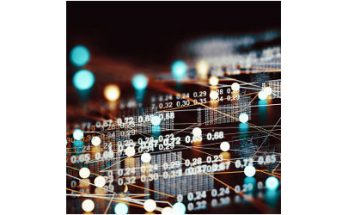“Cyber Security Research in the Arab Region: A Blooming Ecosystem with Global Ambitions”
Communications of the ACM, April 2021, Vol. 64 No. 4, Pages 96-101
Arab World special section: Big trends
By Christina Pöpper, Michail Maniatakos, Roberto Di Pietro
“Despite the efforts and results described here, Arab countries continue to be popular targets for cybercriminals, partially due to their financial power and oil resources, but also due to their location in a region rife with geopolitical tensions.”
In a region where political tensions are recurrent, the strive for security is crucial. This applies equally to the cyberspace, where the need for cyber security is magnified by the level of digitization and technical penetration that the Arab region is experiencing. For instance, the Internet penetration rate is generally higher than 90% and, in some cases such as Kuwait, UAE, and Qatar, approaches 100%. As such, many Arab countries have recognized that the security of cyberspace is an integral part of their economic systems and a matter of national security. This awareness has been followed by policies and actions: In the International Telecommunication Union’s (ITU) Global Cybersecurity Index, the states of Oman, KSA [Kingdom of Saudi Arabia], Egypt, and Qatar rank among the top-20 countries globally—with a considerable part of the Arab countries consistently ranking higher than many European countries. The strive for cyber security is a global as much as a local—and also Arab—endeavor, and the Arab region is gaining pace in cyber security research efforts and achievements. In this article, we will survey the main initiatives related to cyber security in the Arab region, report on the evolution of the cyber security posture, and point to possible Pan-Arab and international collaboration avenues in cyber security research.
Cyber security can be considered as specific to the Arab region as computing itself: Many of the threats, software and hardware developments, and industrial endeavors relating to cyber security are not exclusively tied to the region but are instead of a global character due to the nature of digitalization.
However, the political, economic, cultural, and financial contexts of Arab countries create a particular environment for facing attacks and addressing cyber security issues. The way the Arab world responds to cyber security challenges—in a broad but common understanding encompassing also trust and privacy—does not happen without tension or regional specificity: for instance, the protection of families and the respect for family life are an integral part of the Arab culture, while the strive for privacy protection is neither rooted nor strongly manifested in everyday digital life in Arab countries. Furthermore, while certain Arab countries are well known for their strong financial standing and politically stable systems—some being at the forefront of creating digital societies—others are suffering from war, instability, corruption, and poverty, which creates a heterogeneous and fragmented environment for threats and defenses on various scales.
As an example, the countries in the Gulf region share a strong dependency of their GDP on the oil and gas industry. For instance, the oil and gas sector accounts for roughly 87% of Saudi budget revenues, 60% of Qatar’s GDP, 40% of Kuwait’s GDP, and 30% for UAE’s GDP, to cite a few. Moreover, the production sites are typically concentrated in specific, narrow geographic regions, and represent a critical asset for the cited countries. For instance, on September 14, 2019, drones were used to attack the state-owned Saudi Aramco oil processing facilities at Abqaiq (Biqayq in Arabic) and Khurais in eastern Saudi Arabia, while in 2012 the Shamoon virus (aka W32.Dist-Track) was used against national oil companies including Saudi Arabia’s Saudi Aramco and Qatar’s RasGas. A group named “Cutting Sword of Justice” claimed responsibility for an attack on 35,000 Saudi Aramco workstations, causing the company to spend more than a week restoring their services. Computer systems at RasGas were knocked offline by an unidentified computer virus, with some security experts attributing the damage to Shamoon. In 2017, software commonly referred to as Tritone was the first malware to attack an industrial control system directly (not the IT infrastructure, like Shamoon did) by attacking a Saudi Arabian petrochemical plant. The cited attacks had worldwide consequences, sending up the price of oil, with further cascading effects and their increasing sophistication is alarming, pointing to state-level actors.
Consequently, awareness of the importance of cyber security raised within the national governments in the Arab region. One can observe committed endeavors toward the creation of secure digital environments within Arab countries, manifested by the development of national cyber security strategies and the establishment of national cyber security agencies—at varying levels of maturity and scope (see accompanying table). National cyber security strategies exist or are in rollout for Egypt, Jordan, Lebanon, Kuwait, Qatar and the UAE, others have occurred as drafts or are in development (Saudi Arabia, Bahrain). For other Arab countries, the recognition of cyber security as a matter requiring a national strategy is gaining momentum. The endeavors have been well directed and managed, as shown by international benchmarks. For instance, ITU’s cyber security index is overall rising in many Arab countries (see accompanying figure), indicating the national strategies, capabilities, and programs in the field of cyber security are on the rise (regarding national cyber security strategies and computer emergency response teams, but also cybercrime legislation, awareness, and capacity building).
Despite the efforts and results described here, Arab countries continue to be popular targets for cybercriminals, partially due to their financial power and oil resources, but also due to their location in a region rife with geopolitical tensions. Since the Arab region is situated at the crossroads of vastly different cultures, it has historically been a place of major geopolitical conflict, with impact on all Arab countries. With the transition to new ways of engaging into conflict, cyber security is essential in the modern cyber-defense landscape.
About the Authors
Christina Pöpper, NYU Abu Dhabi, UAE.
Michail Maniatakos, NYU Abu Dhabi, UAE.
Roberto Di Pietro, HBKU-CSE, Doha-Qatar.






